| |
| |
| |
| Presented By Amazon |
| |
| Axios AM |
| By Mike Allen ·May 21, 2021 |
| 😎 Happy Friday! Smart Brevity™ count: 1,179 words ... 4½ minutes. Edited by Zachary Basu. |
| |
| |
| 1 big thing: The techlash is a bust |
 Data: FactSet, company filings; Chart: Andrew Witherspoon/Axios After three and a half years, the U.S. backlash against tech's biggest firms has failed to dent or daunt them, Axios managing editor Scott Rosenberg writes from the Bay Area. - Why it matters: Today, Google, Apple, Amazon and Facebook are massively richer, more powerful and more determined to push their products and services deeper into our lives than they were in January 2018, when Axios first used the term "techlash."
The companies have run a gauntlet of public and government criticism: - Their CEOs have regularly trooped or Zoomed to Capitol Hill, with Mark Zuckerberg alone appearing half a dozen times for countless hours of "I'll get back to you on that"s.
- They've been sued as monopolists by the Justice Department and coalitions of states (Google), and by the FTC (Facebook) and EU.
- Some have had to pay record fines.
- They've infuriated politicians on both sides of the U.S. partisan divide — conservatives believe they've been censored, and progressives believe social media promotes misinformation.
But so far, the assault has barely scratched these companies' gleaming confidence. - Profits are up, and they sit on massive hoards of cash.
- They're barreling ahead with acquisitions and new projects as if all the investigations and lawsuits weren't happening.
Congress has yet to go down the avenue of legislation tech firms most fear — changing Section 230 of the Communications Decency Act, which made today's internet possible by protecting online providers from liability for user-contributed content. - The Biden administration has appointed some tough critics of tech power, and hostility to tech is bipartisan.
- But the parties diagnose the problem differently, and getting any legislation passed in a bitterly and evenly divided Congress is still a long shot.
What's next: It's not that tech leaders don't see any threats on the horizon — they live by the slogan popularized by Intel's Andy Grove, "Only the paranoid survive." But their fears lie in different directions than those mapped by techlash critiques. What keeps tech CEOs awake at night: - Where can we find new growth?
- Are we losing the kids?
- Are we losing our employees?
- Will the next platform shift disrupt us?
The bottom line: Antitrust lawsuits could still bite, and new legislation could still win approval. But right now the tech giants still have way more to fear from one another than from anyone else. |
    |
| |
| |
| 2. Fears ceasefire won't last |
 |
|
| On a horse cart loaded with belongings, Palestinians return today to their home in the town of Beit Hanoun, northern Gaza Strip. Photo: Khalil Hamra/AP |
| |
| The ceasefire has held for 12+ hours, but people in Israel worry that they'll be back to a conflict in several months, Axios from Tel Aviv author Barak Ravid tells me. - Israel doesn't have a stable government that can make a meaningful change in policy.
The Israeli middle class — in Tel Aviv and surrounding cities — felt the conflict in a much more direct way than in the past. - This wasn't the first time Hamas fired on Tel Aviv. But this time, the number of rockets was massive. Millions of Israelis felt it directly, and realized how those who live in southern Israel, close to Gaza, have felt over the last 15 years.
For many Israelis, the most shocking thing was the violence between Jews and Arabs inside Israel. - It surfaced hatred among part of the Arab minority against the state that people didn't think existed. And it exposed deep racism among part of the Jewish population toward Arabs.
- This wound will take a long time to heal.
What to watch: Secretary of State Blinken will travel to Israel and the Palestinian Authority in the coming days, his first trip to the region. - The visit will focus on stabilizing the ceasefire and discussing humanitarian relief and reconstruction in Gaza, where over 200 Palestinians have been killed and thousands have seen their homes decimated.
🗞️ How it's playing ... |
    |
| |
| |
| 3. "Axios on HBO": Climate carpool |
| Photo: "Axios on HBO" Coming Sunday on "Axios on HBO": White House national climate adviser Gina McCarthy takes me for a spin in a Chevy Bolt — part of the growing U.S. government fleet of electric vehicles. - No karaoke, but she said she was totally up for a car chase.
Catch our conversation Sunday at 6 p.m. on HBO and HBO Max. |
    |
| |
| |
| A message from Amazon |
| Watch what happened when Amazon raised their starting wage to $15/hr |
| |
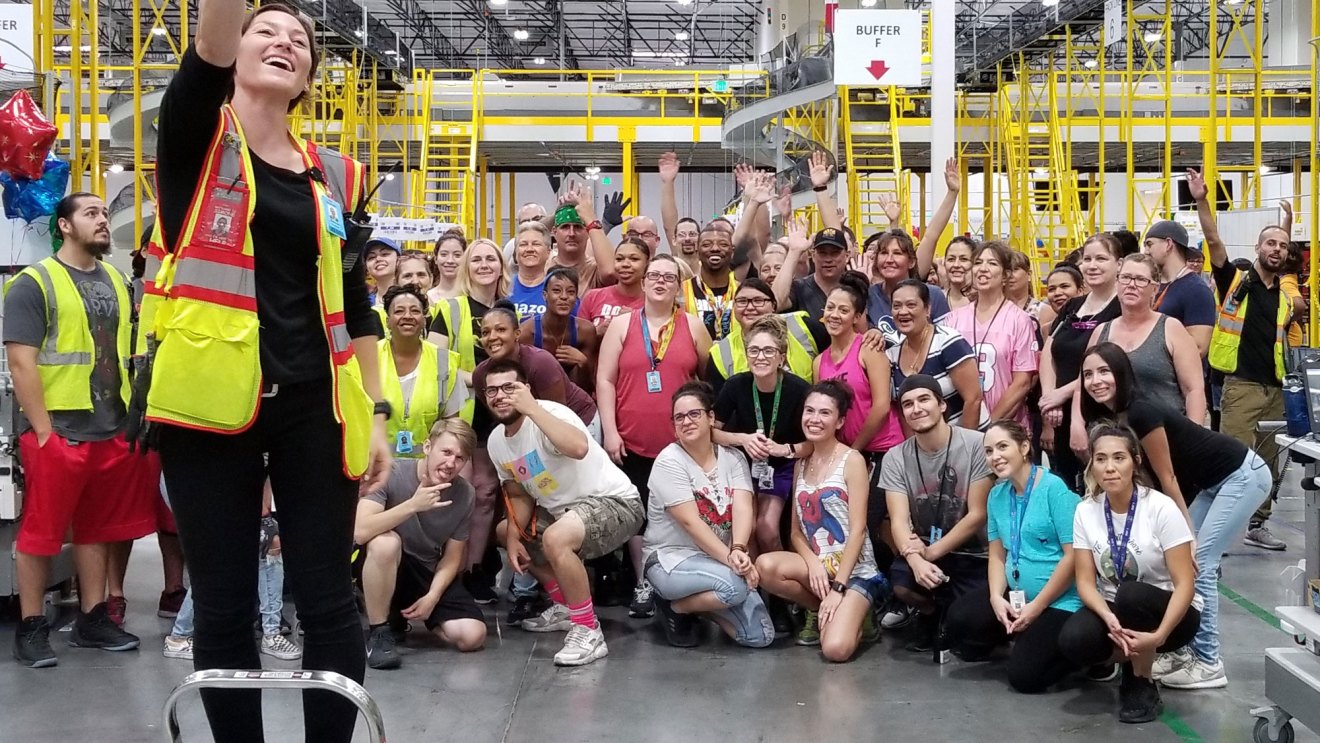 |
| |
| Amazon saw the need to do more than the federal minimum wage of $7.25/hour. In 2018, they established a $15/hour starting wage, and they've seen the positive impact it's had on their employees and their families first-hand. Learn more about the company's benefits. |
| |
| |
| 4. Dating apps add vax badge |
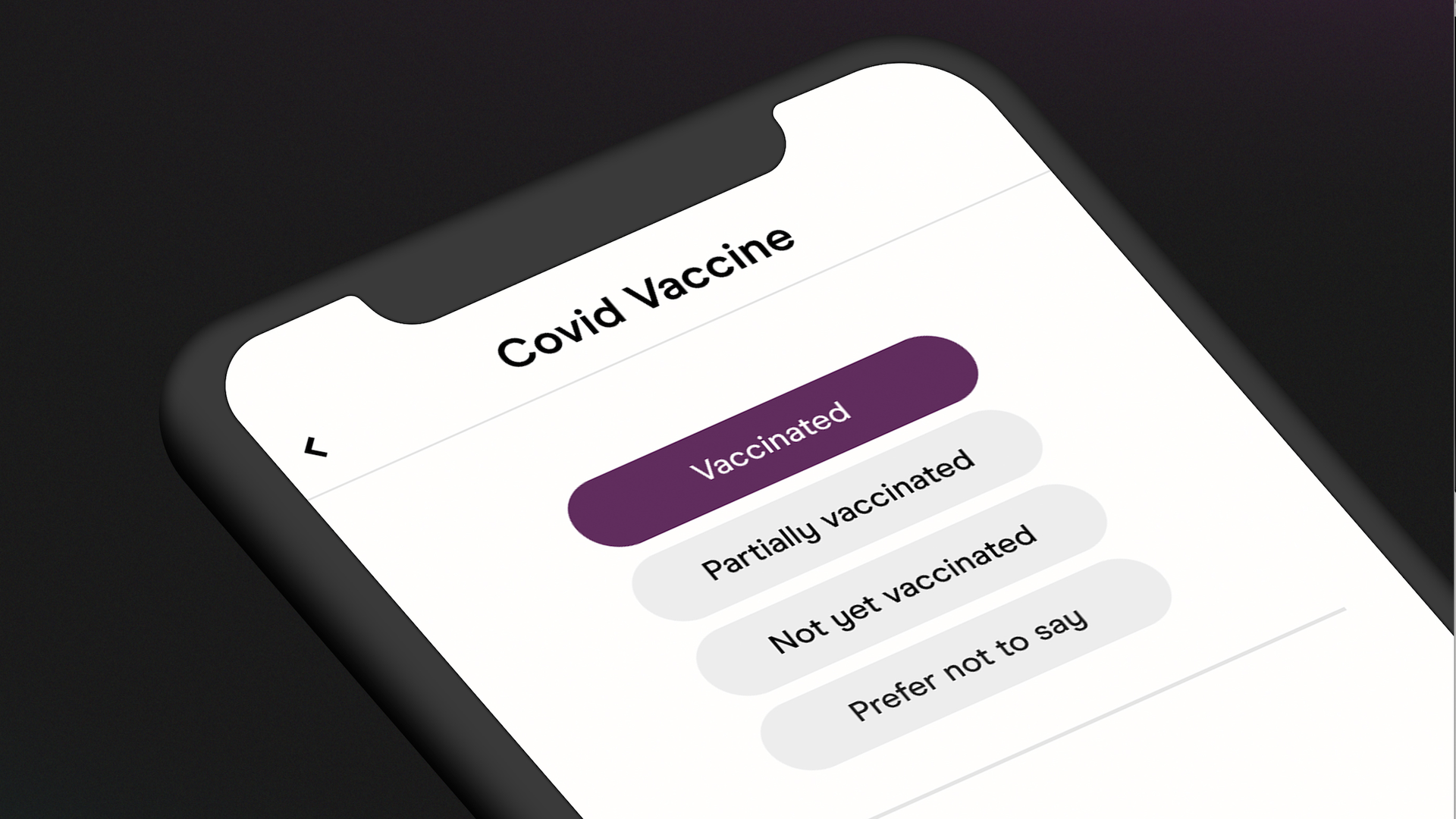 |
|
| Image: Hinge |
| |
| The White House is teaming up with nine of the largest dating sites to offer badges and other perks to those who have gotten their COVID-19 vaccine, Axios' Ina Fried reports. - Between the lines: According to research from OkCupid, people who are vaccinated or plan to get vaccinated receive 14% more matches than people who don't plan to get the shot.
Keep reading. |
    |
| |
| |
| 5. Death of the office was greatly exaggerated |
 Data: JLL Research. Chart: Will Chase/Axios The prospect of downtown business districts turning into modern ghost towns is looking much less likely than in the early days of lockdown, Axios business editor Kate Marino writes. - In a KPMG survey last August, 69% of CEOs said they planned to downsize office space. This March, just 17% said they'll be downsizing.
- Tech companies led the remote-work revolution at the start of the pandemic. Now, many are making investments in physical offices.
While demand for office space is shrinking, that's likely to be partly offset by a higher average amount of space allocated to each person. - The industry calls it "office de-densification," Katie Vaz, managing director at real estate asset manager Clarion Partners, tells Axios.
Employees saw their personal space shrink dramatically for decades: - Offices had an average of 325 square feet per employee in 1990 — and 196 feet in 2020, according to commercial real estate company JLL.
That's now expected to reverse. |
    |
| |
| |
| 6. Black Lives Matter circles globe |
 |
|
| Photo illustration: Aïda Amer/Axios. Photos: Artur Widak (NurPhoto), Alain Pitton (NurPhoto), TF-Images/ Getty Images |
| |
| The killing of George Floyd one year ago didn't just lead to the massive Black Lives Matter protests in the U.S., Axios' Ivana Saric writes. It inspired demonstrations against the ravages of racism and police brutality in other countries, too: - In Australia, protests highlighted the targeting of Aboriginal Australians by police. More than 29% of prisoners in Australia are Aboriginal, despite only comprising about 3% of the total population.
- In France, the government set up a platform to record discriminatory police stops and banned chokeholds as a police tactic — only to reverse the decision after protests from the country's powerful police unions.
- In the U.K., Prime Minister Boris Johnson vowed to create a commission to study all "aspects of inequality" in British society, though the resulting report was slammed by activists for downplaying the role of systemic racism.
The big picture: The movement raised people's awareness of the problems, but hit roadblocks when it came to structural change. |
    |
| |
| |
| 7. Trump DOJ secretly got CNN records |
| The Justice Department under former President Trump secretly obtained the 2017 phone and email records of CNN Pentagon correspondent Barbara Starr, CNN reports. - "CNN strongly condemns the secret collection of any aspect of a journalist's correspondence, which is clearly protected by the First Amendment," said CNN President Jeff Zucker. "We are asking for an immediate meeting with the Justice Department for an explanation."
Keep reading. |
    |
| |
| |
| 8. 👻 Snapchat's augmented-reality play |
 |
|
| Snapchat |
| |
| Snapchat unveiled a new version of its 3D glasses called Spectacles, giving it a big boost in the race to deliver augmented reality (AR) devices to consumers, Axios Media Trends expert Sara Fischer writes. - The glasses have four built-in microphones, two stereo speakers and built-in touchpad controls that make it easy to send pictures and videos using augmented reality to friends.
- But the Spectacles aren't for sale, yet. And with a battery life of just 30 minutes, they're not quite ready for mass market consumption either.
Keep reading. |
    |
| |
| |
| 9. Business pleads for ransomware help |
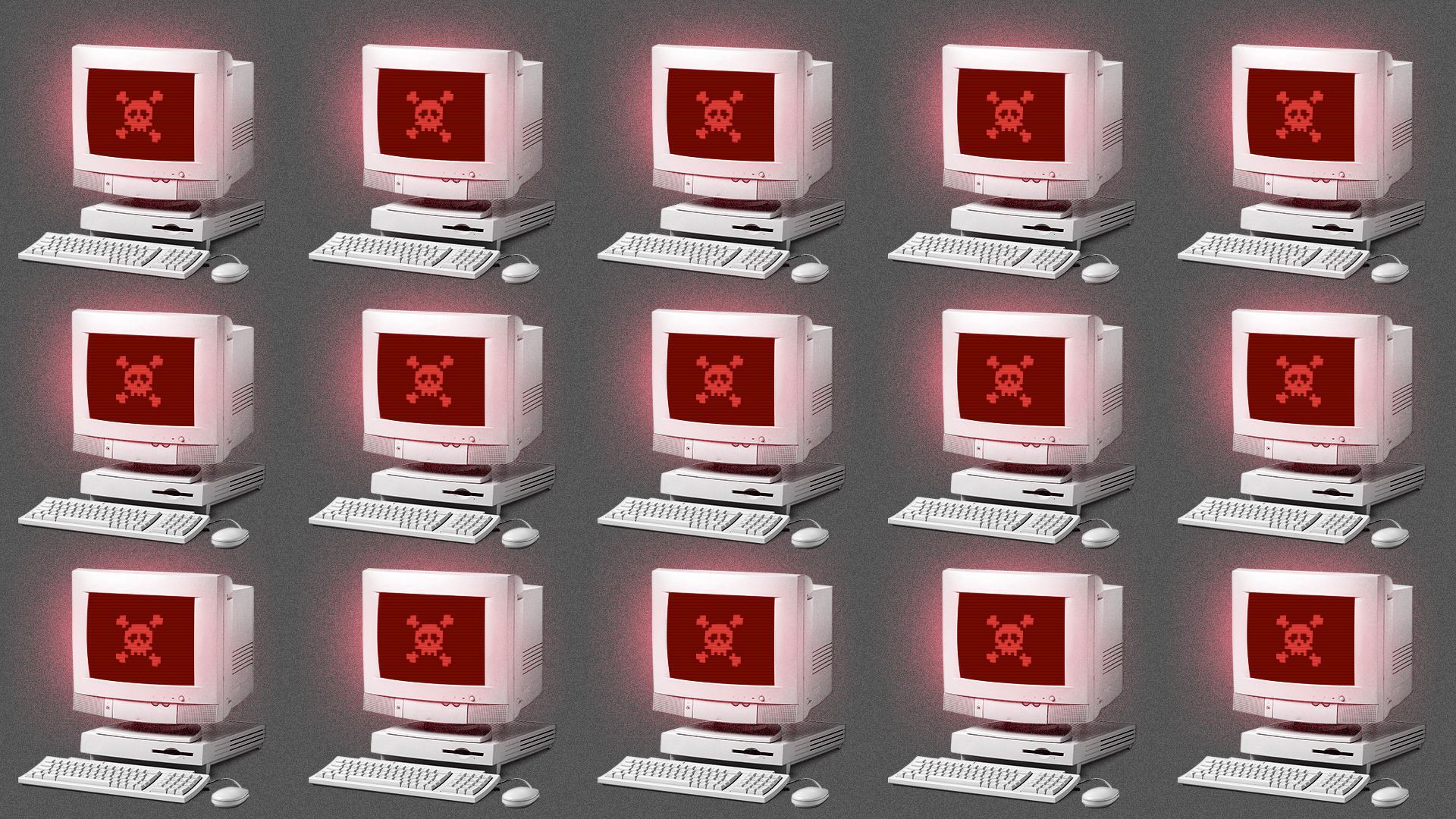 |
|
| Illustration: Aïda Amer/Axios |
| |
| The U.S. Chamber of Commerce is calling on the federal government to do more to fight ransomware, as businesses continue to be hit with financially motivated attacks, Axios' Ina Fried reports. - Bloomberg reported yesterday that CNA Financial quietly paid $40 million in March to regain control of their systems after a ransomware attack.
Share this story. |
    |
| |
| |
| 10. 1 🐦 thing |
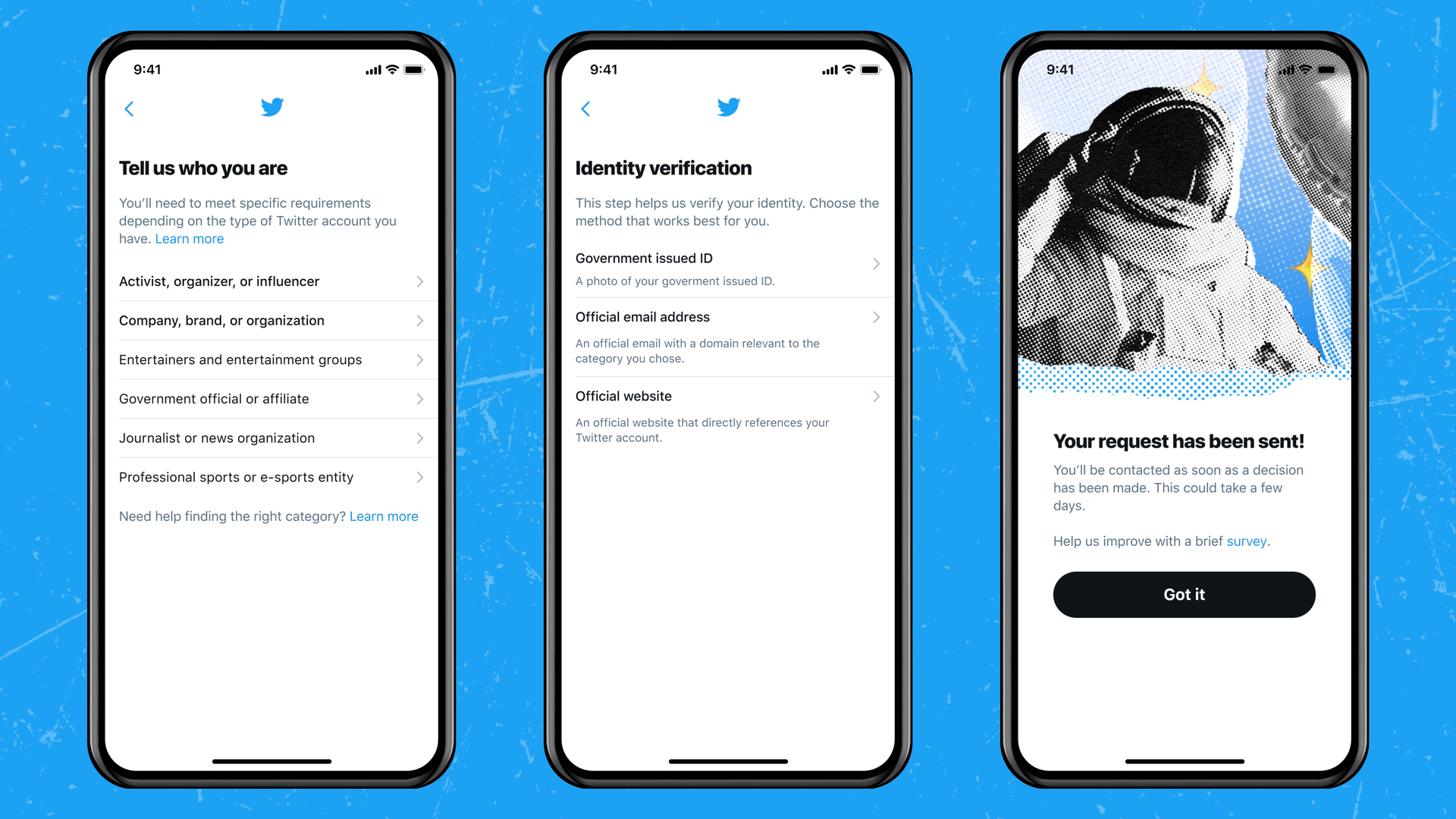 |
|
| Twitter |
| |
| Twitter announced yesterday it will accept and review all public applications for verification, giving far more people the opportunity to secure that exclusive blue check, Axios' Sara Fischer writes. - Twitter says it recognizes that making this process so public could be risky, as users could fake requirements they see online. But it says it's hired up to make sure every application is reviewed by a human.
Keep reading. |
    |
| |
| |
| A message from Amazon |
| Why does Amazon support raising the federal minimum wage? |
| |
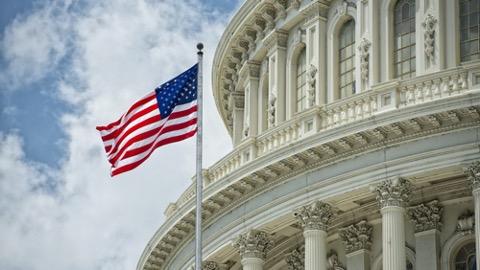 |
| |
| Since raising their starting wage to at least $15 an hour in 2018, Amazon has seen firsthand the impact on its employees, their families and their communities. Why it's important: The federal minimum wage has been stuck at $7.25 an hour since 2009. Learn more about the impact they have seen. |
| |
| 📬 Please invite your friends, family, colleagues to sign up here for Axios AM and Axios PM. |
Post a Comment
0Comments